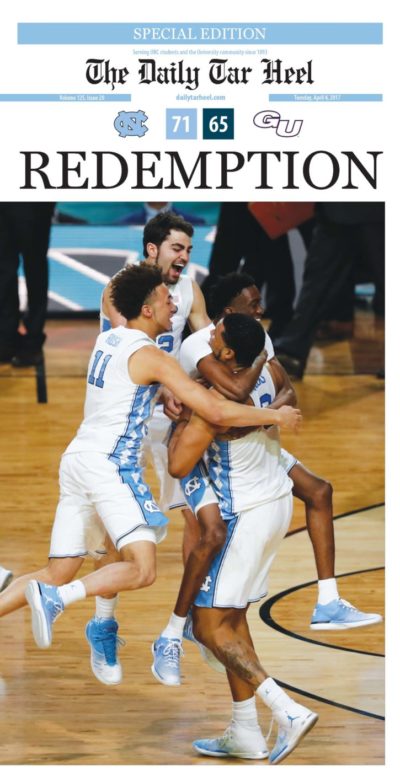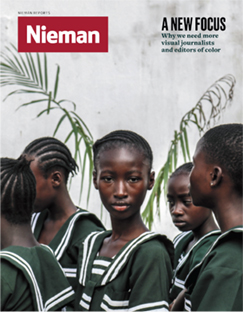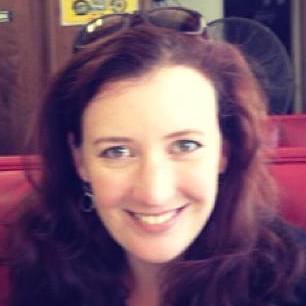
A special March Madness edition of The Daily Tar Heel
I became executive director at the University of North Carolina-Chapel Hill’s Daily Tar Heel in August 2016, at a make-or-break moment for our nonprofit newspaper. We’d lost $272,000 in the previous fiscal year, and hadn’t broken even since 2011. Everyone sensed that money was tight, but the extent of the problem wasn’t discussed— and that secrecy posed a serious threat to our organization.
When I arrived for my Nieman year in 2012, I was very frustrated that so many newsrooms had been boxed out of the organizations’ financial decision-making. Without information, journalists can’t be effective participants in our own survival.
My friend Celeste LeCompte, NF’15, a veteran of Gigaom, which shut down suddenly due to financial troubles, describes exactly what we’re trying to achieve at The Daily Tar Heel: “A front-row seat on the finances of my own employer … made me both a better reporter and a better employee.”
In January, we instituted a weekly meeting, “DTH $$$ Talk,” to get everyone up to speed on our finances, and to improve them. We began with basics: Exploring our P&L line by line, answering questions from all comers—including about salaries and perceived inequity between departments. It took weeks, candor, and patience.
Next up: Small sessions in which cross-department teams came up with one thing they could do to create revenue without a cash investment, or to create savings without disrupting quality. The cross-building teams were important; we had to bring different knowledge bases together. Our ad side rarely sits with our news side; our new brand studio needs to work with both.
After the brainstorming comes group discussion, a consensus about which ideas to pursue, and—this is key—assigning a team to execute each idea and a deadline to report back for a postmortem. So far, students have created new photo sales teams, a sponsor-supported March Madness vertical for our website, pop-up shops for existing merchandise, and plans for a new-to-us events model. Our rent is too expensive, and our new editor-in-chief (leading the largest department in the building) is leading the search for new digs, and taking it as a challenge to improve both our use of space and our daily journalism.
The key, for me, has been that there is no halfway: We had to establish transparency about our books, commit to answering uncomfortable questions, and give not-very-experienced people both the power to push ideas forward and the structure in which they will succeed.
And while we’re still working on it—thanks to the national championship win for the UNC men’s basketball team and the tens of thousands of extra papers we sold, we expect to break even this year—it’s a hell of a lot better, for me and for our organizational culture, to share both the struggle and the successes.


